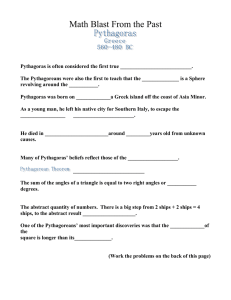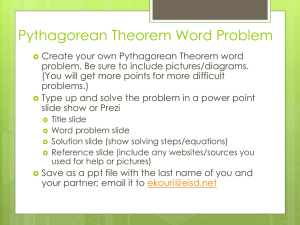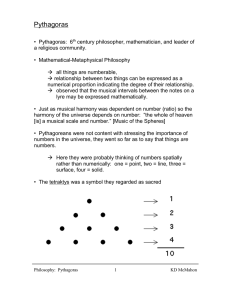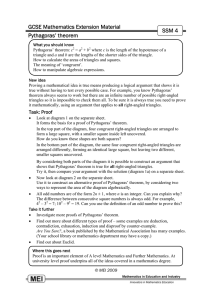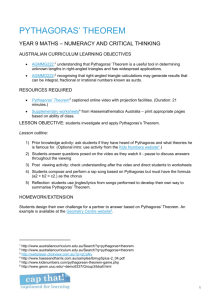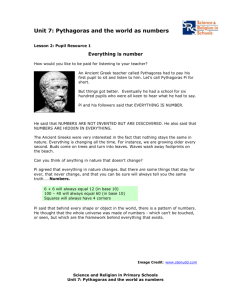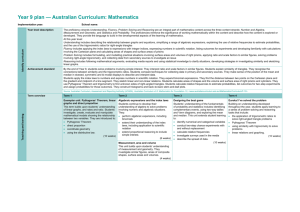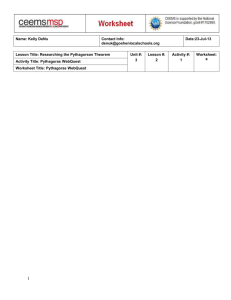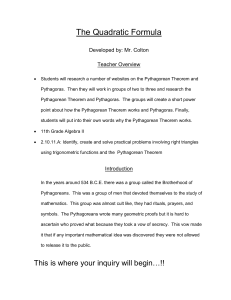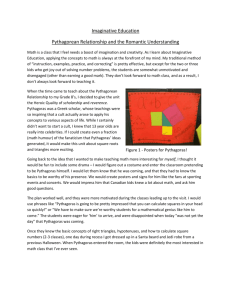Pythagorean Theorem
advertisement
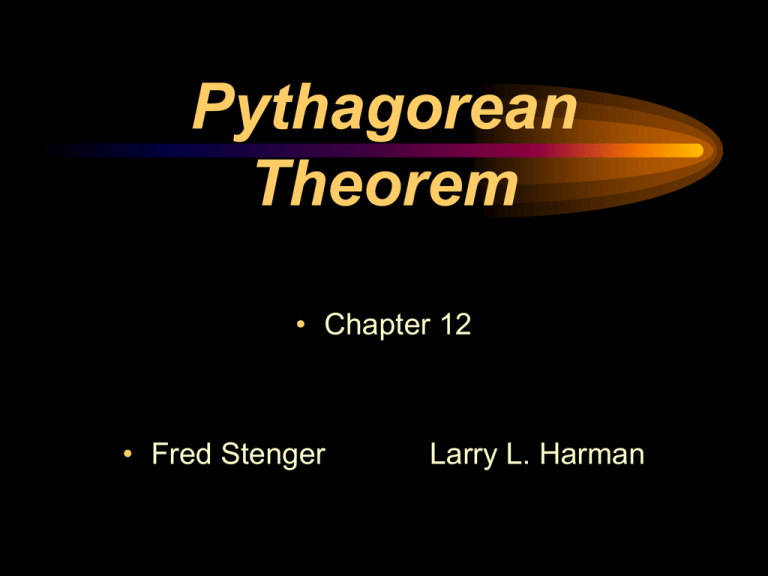
Pythagorean Theorem • Chapter 12 • Fred Stenger Larry L. Harman Everyone knows the Theorem but who know him Pythagoras (569-500 B.C.E.) was born in Greece, and did much traveling through Egypt, learning, among other things, mathematics. Not much more is known of his early years. Pythagoras became famous by founding a group, the Brotherhood of Pythagoreans, which was devoted to the study of mathematics. The group was almost cult-like in that it had symbols, rituals and prayers. In addition, Pythagoras believed that "Numbers rule the universe,"and the Pythagoreans gave numerical values to many objects and ideas. These numerical values, in turn, were endowed with mystical and spiritual qualities. What do you know about a2 + b2 = c 2 Because the Theorem appears so natural, it most likely appeared in many other cultures. The Theorem has been found in many parts of the ancient world including: Mesopotamia, Egypt, India, China Oldest reference is from India, in the first millennium BC. What do you know about a2 + b2 = c 2 Pythagoreans recognized irrational numbers, but refused to accept them – (square root spiral). One of the proofs uses the concept of area by squaring the length of the lines of the original right triangle. Euclid’s Proof of a2 + b2 = c2 http://www.cut-theknot.org/pythagoras/morey.shtml Algebraic Proof The embedded square. President Garfield is even credited with a proof. Can you find the geometric proof. Geometric Proof The simplest proof of all. Uses the concept of similar triangles. Pythagorean Triples Integer solutions to a2 + b2 = c2 32 + 4 2 = 5 2 A formula where m>n, a= m2-n2 b= 2mn c= m2+n2 Pythagoras and Fermat Pythagorean Theorem led to Fermat’s conjecture that there were no solutions to an + bn = cn when n is greater than 2. This Theorem was not actually proved until 1993 by Andrew Wiles. Timeline From early times to about 600 BC various cultures appeared to have discovered the concept of a2 + b2 = c2. 569 to 500 BC – Era of Pythagoras. ~300 BC -Euclid’s Elements 1600’s-Fermat References http://www.geom.uiuc.edu/~demo5337/Group3/hist.h tml http://www.cut-the-knot.org/pythagoras/morey.shtml Berlinghoff, william P and Fernando Q. Gouvea. Math through the Ages – A Gentle History for Teachers and Others. Farmington: OxtonHouse, 2002. http://mathforum.org/library/drmath/view/55811.html
